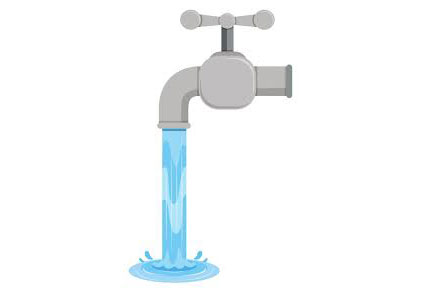Recommendations on the consumption of water from the Roses supply network
Below we offer information regarding possible questions about the recommendations for consuming water from the Roses supply network.
09/10/2025 13:56
Frequently Asked Questions
What are trihalomethanes?
They are a family of by-products that result from the interaction between chlorine, necessary for drinking water disinfection, and organic matter that may be dissolved in the water.
Are trihalomethanes dangerous?
As with other elements analyzed in drinking water, they would be harmful only in cases of prolonged exposure over many years, at high and continuous levels. This is why they are one of the many elements monitored in analyses.
Can there be trihalomethanes in the water?
Current regulations in our country do allow the presence of trihalomethanes in drinking water, but only within specific limits. The WHO, for example, sets higher thresholds, so the current regulation could be considered “more conservative” or “more protective”.
Why is the water considered “not drinkable”?
Because the limits established by national and regional regulations have been exceeded, even if only slightly or temporarily. Although the water in Roses is within the parameters set by the WHO, it is mandatory to declare it “not drinkable”.
Can I drink tap water?
The recommendation is not to use tap water for direct consumption, but a series of measures can be taken:
As indicated by the World Health Organization (WHO), trihalomethanes present in drinking water can transfer to the air due to their volatility. Therefore, exposure may occur through ingestion, inhalation, or dermal contact during showers or baths.
Recommended measures:
- Boil the water alone for 1 minute before adding food for cooking.
- Store tap water in a ventilated container for about 24 hours before drinking (e.g. in an open jug).
- Boil tap water and let it cool before drinking.
- Reduce shower and bath time, and use cooler water to reduce inhalation exposure to trihalomethanes.
- Improve ventilation in bathrooms and kitchens.
Can I shower or bathe?
Yes. Shorter showers, lukewarm water, and good ventilation help reduce exposure to THMs.
Can I use the washing machine?
Yes.
Can I wash the car or water the plants?
Yes.
Can I wash dishes, mop the floor, or hand-wash clothes?
Yes. It is recommended to ventilate rooms well.
Can I brush my teeth or wash food with tap water?
During this period, it is advisable to use water that has been boiled beforehand or that has rested for at least 24 hours in an open container.
Can I give tap water to my pet?
The same recommendation applies: use water that has been boiled and cooled or that has rested for at least 24 hours in an open container.
Other recommendations
Ventilating kitchens and bathrooms, and in general any area where water is used, is recommended to dissipate the fraction of THMs that may pass from water into the air.
